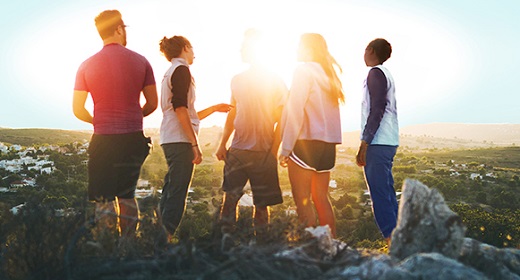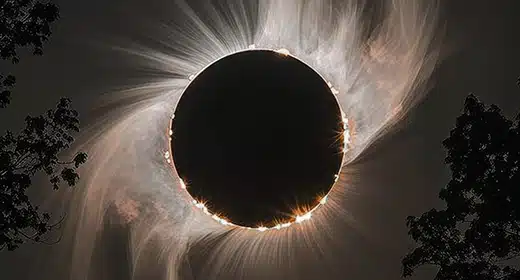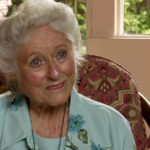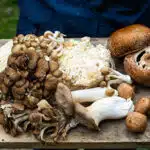We live in an age where much progress in all areas of life and our understanding of the world and our place in it has been accomplished…
if we were to look back and compare it to even 100 years ago. Yet, there’s still much disagreement as to what it means to be human, who gets included and accepted with open arms in the human family and who is discriminated, prejudiced, excluded, or judged by a God or the laws of the land. Current news and political debates in America for the 2012 Presidential election never miss the contentious topics of same sex marriage, Christian homophobia, as well as alien immigrants and the discrimination of other minorities or religious groups.
The personal struggle and experiences of Rev. Robert V. Taylor, anti-apartheid activist from South Africa and the highest ranking openly gay clergy-person in America at the time to be accepted into a position of service, is a living example that discrimination is still very much a reality and up-hill battle in our times. He is the author of A New Way to Be Human, and is very passionate about his message and hope for the future of our human family. He looks forward to a time when we can all accept our differences and recognize the richness we bring in our diversity, when we see our true human potential and that we need each other to create a world built on love, compassion and kindness, rather than divisiveness and prejudice. In this exclusive interview with Robert V. Taylor, he insists that now is the time for a new way to be human, one where we are more fully alive! His words and vision are not empty ideals but come from the truth of his living experience and fight against discrimination, in South Africa against apartheid, and within the church fighting for the acceptance to serve his community as an openly unashamed gay man. Enjoy!
Robert Taylor: I spend much of my time doing workshops and seminars for professional associations and universities on leadership issues and integrity around leadership, and questions of courage. I’m also known as a spiritual leader and the author of this new book called, A New Way to Be Human, which is really intended as a crossover book. You’ll see that from the endorsements that have come through for the book from corporate CEOs and heads of philanthropic organizations, and spiritual writers of many kinds, including Deepak Chopra or Bernie Siegel. It’s really a crossover book for those who are willing to enter into a new consciousness of how to both be and think about our place in the world and in the universe.
I grew up in Cape Town, South Africa. I was born and raised there and began as a teenager to experience some of the realities of apartheid and see firsthand what those were like. It really set the course for my life because I realized that, as at its essence, the apartheid system tried to enclose people, wall them off from one another based on nothing other than the racial identity that they assign to you. In addition to all of the violence and the intentional destruction of human life, it was an attempt to make sure that we never discovered one another’s magnificence as human beings.
It was one of the early steps that I began to take in realizing that not only are we all made for oneness and are all profoundly interconnected, but we need one another to be magnificent. And so it began a journey of working with those who were wanting transformation of their lives, looking for ancient wisdom and truth, as well as spiritual truth, to be at a new place that reflected a new way of actually being family and being human together.
SC: How did you go about opposing the apartheid establishment and ideology in South Africa in your youth?
RT: My first awareness of the realities of apartheid came when I was about 13 or 14 and my parents moved me to a private school. It was actually the Cathedral School in Cape Town next to the Houses of Parliament. Outside the school and the cathedral building was a place where protestors often gathered. When the police or military came to disperse them, the cathedral doors would always be open as a place of refuge. It was in that place, and these stories that the teachers and the clergy told that I began to hear about what South Africa was really like.
I underwent as a teenager two spinal surgeries and both were unsuccessful. I had, at that point, become involved with a mediation and prayer group and was asked by the man who led it if he could pray with me for healing one night. I’m not even sure that I believed in physical healing; I’d never really thought about it. What I discovered was that out of that experience, and after he prayed with me, he said some very curious words. He said, “Robert, you will never again be enclosed by your spine.” I didn’t know what he meant by that.
Several weeks later, I received an invitation to actually speak about my experience of healing, and what was significant for me was that the invitation came from a black community. I went, and then realized I was the only white person in the room. For the first time, I had an experience of what it was like to be a minority. I felt nervous and anxious. I quickly discovered that I was embraced and welcomed for who I was and that we had much in common.
It was a moment of incredible awakening for me. I began to develop friendships and realized that my new friends were committed to peaceful resistance and their hearts were filled with love. They refused to think about the option of turning to violence, although they understood those who had made that choice. They themselves refused to go there. I remember, at the time I was 16 and 17, thinking, “Boy, if I was in their situation, would I have the same heart of compassion, the same generosity of spirit? Would I have the same groundedness to allow myself to be in the space that I discovered them to be in?
When you’re 15 and 16, and you’re going through major spinal surgeries, and are flat on your back and wearing a metal body-cast for six months after each surgery, life shifts. You suddenly realize that you’re not the invincible person that every young person believes themselves to be. One of the sort of veiled gifts of that experience was that I began to understand that life is precious and very fleeting.
After the first encounters beginning to see firsthand the realities of apartheid and developing friendships with persons of color in South Africa, I understood that they refused to allow themselves to be walled off from other people by the government. And of course, the government was operating its apartheid policy in the name of God. They claimed biblical justification. So at a very early age, I became very suspicious of religious and political leaders who cloaked their own particular views in the mantle of religion and hijack God for their own purposes, usually purposes of destruction and divisiveness.
I got very involved in the protests around Steve Biko’s murder in ’77 and had some national media attention because of a protest I led. I actually saw and heard Desmond Tutu for the first time at Biko’s funeral. I was one of just a few hundred whites in a stadium of over 30,000 people. I remember his insistence on people not doing what the government had done, just murdered Biko, then shot down all kinds of organizations, and put people into house arrest. He said, “We cannot turn to violence because if you pick up stones or guns, you will become just like them.”
Desmond Tutu kept reminding people that the path was to be a partner in love with the holy. I was terrified by that because I was dealing with my emergent truth of being a gay man, and was terrified in South Africa. It was an oppressive culture and it was not safe to come out. I believed that we were all loved profoundly, but wasn’t sure I believed it fully because of my sexuality. I talk about that in the book because many of us feel we’re not good enough or lovable or beloved because of something about us. And that something could be gender or race or immigrant status or any number of things, such as a perceived lack of education or a sexual orientation.
At a very early age, I became very suspicious of religious and political leaders who cloaked their own particular views in the mantle of religion and hijack God for their own purposes, usually purposes of destruction and divisiveness
SC: Were you afraid of being judged?
RT: Exactly. What I’ve really come to believe is that if ever there is to be a Judgment Day, the only question that we will be asked is, “How did you love? Did you love generously?” I believe that love and compassion are not just the pulse of the universe but the only things that matter in terms of our life and how we think of ourselves. When we know how loved we are and can begin to love our self, with all of our shadow sides and complexities, the messiness of the story that each of us has, we begin to be compassionate to ourselves but also towards other people, particularly those whom we have been raised to believe are different or inferior to us.
The path to love, I hear some people say, “Well, that’s kind of a mushy, soft thing.” I vehemently disagree. I think being grounded in a path of love and compassion is in fact to be a person of enormous courage and strength, who will stand in the midst of hatreds or jokes that diminish other people and will point to another truth, with gentleness and tenderness, but with clarity.
In the book I speak about one of the learnings that I had from my Buddhist friends who say that the nearest enemy of love is conditional love. I think many of us have or still experience people who love us with conditions attached. If we perform in a certain way or do certain things, we’ll be loved — I don’t believe that is love.
SC: Why is it so hard to love and accept ourselves? We can love others easier, it appears. Why is that?
RT: I think many of us have been raised with a construct that I believe is from the old way of being human, not the new way — fear. Firstly, fear of our own beauty, brilliance and magnificence, fear of actually claiming our voice and imagination, fear of perhaps disappointing those who we think we need to please, and fear sometimes of being willing to go to the edges of our life where we normally find growth and transformation.
For some people, and I’ve worked with thousands over the years, fear of being judged by God is also true. And it breaks my heart to think that people would use the sacred as a weapon for their own purposes, to essentially say, “You’re being judged because of X, Y, or Z.” It almost doesn’t matter the reason. It is a profound abuse of religion and certainly is not a part of any of the wisdom traditions that exist in the many spiritual traditions of the world.
SC: You had to flee from South Africa at some point and came to America to pursue a career in Christian ministry. Can you tell us about your involvement with Desmond Tutu and your transition at that time?
RT: It was an amazing moment. I went to see Desmond Tutu because I had made the decision to not serve in the South African military, which was compulsorily for all white males. The choices were to serve, go to jail for life, or leave the country. Leaving the country was not an option for me, so I had made the decision over several years to go to jail. I went to see him to ask for his guidance and wisdom on how to get through that time.
We had this amazing encounter in which he began by asking me a question. He said, “Robert, tell me who you are and not what you’ve done.” It’s a profound question. It turns upside down our encounters with other people when we ask that question. I was frozen for a moment. I began telling him about my second spinal surgery, and waking up in the middle of the night terrified because I had fallen out of bed, and was sure I had perhaps damaged the work the surgeons had done. After determining that I was okay, my nurse sat by my bed and held my hand. I said to her, “It’s lonely in the hospital and I’m afraid.” Then I started talking about a book I was reading by Trevor Huddleston in which he described this really vibrant, beautiful community in South Africa that was multi-racial, multi-ethnic, multi-religious, and was literally erased from the face of the earth, bulldozed by the government because it didn’t fit their prescription of making sure people of different groups got to know each other.
The nurse then says to me, “I really need to get back to work,” and on her way out, she paused and said, “Robert, you’ve actually had a very good visitor in Mr. Huddleston.” And with that, Desmond’s laughter just filled the room. He was cackling. I was thinking, “Gosh, what have I said?” I was a 22-year-old white kid in the presence of this man who I’ve admired and never spent time alone with before. Finally, he settles down, and says to me, “Robert, when I was a teenager, I was hospitalized with tuberculosis, and just like you, I was lonely and afraid, and Trevor Huddleston was my pastor. He used to come and visit me, read stories to me, and he inspired me to do what I do.”
In the story of each one of us, there are astounding things that connect us to other people. I had no idea that telling Tutu that in response to his question would lead to that meeting-ground between us. We then started to talk about my going to jail, and he said, “Absolutely not. This is not the time for that. There will be a time when that’s the right thing to do, but not now. We’ll get you out.” We had about ten days and, literally, within ten days, I was on a plane to New York City. He picked up the phone and called a friend of his and they set up me going to graduate school and a place to live — it was remarkable.
What I’ve really come to believe is that if ever there is to be a Judgment Day, the only question that we will be asked is, “How did you love? Did you love generously?”
It was this man doing this remarkable thing for a young white kid he’d never met before that I found a reason to believe. It was a story about the incredible generosity of strangers who welcomed me as though I was coming to their own home. My life has been shaped by that sense of generosity that is so unexpected and when we’re generous in that way brings us alive. When we allow ourselves to be the recipients of unexpected generosity, we certainly think about our place in the world differently. We cultivate a life and practices of gratitude for people but also for the very grandeur of the universe itself.
SC: Isn’t that what being human really is about? Most people, when they receive an act of kindness like what you’ve described, immediately blame it on an invisible external force or “wholly-other” God? It’s interesting that the human aspect, the true latent human potential in all of us is rarely recognized. It was a human being taking action and caring for another human being that actually made it happen.
RT: I believe that each one of us is made for goodness, that we’re hard-wired for it and made for kindness. I believe that compassion is built into our DNA and that generosity is an expression of all of those things of goodness, and kindness, and compassion, and that they’re all bundled together in a remarkable way. When we ground ourselves in those truths of goodness, kindness, compassion, and generosity, our own sense of being human changes and becomes more fully alive and our experience of the world is different. We stop catching at life and holding onto what we have and begin to move out of narrow confines that we’ve constructed around our life to protect ourselves.
When this happens we find, instead, that we’re on a very generous field of life in which, yes, there are terrible things in the world, and people who are certainly not kind or generous, but when we choose to live that way, we begin to attract people who feel the same way. When we collectively start doing acts of kindness and compassion and generosity, they begin to have a ripple effect and we begin to change the world and the process where we are living life with a whole new dimension and consciousness that we never had before.
SC: You became a minister in the Episcopal Church in America. Tell us about being an openly gay minister in Christianity, because there are many instances in the bible, even, where homosexuality is unacceptable and judged by God. How did you reconcile your personal life and sexuality with your Christian beliefs?
RT: I learned very early on in South Africa that the bible could be used to justify all kinds of oppression and denial of humanity. People have used the bible to justify slavery. Many people still use it to justify putting down women. The bible says many things and if we followed it, we wouldn’t be eating shellfish and pork, would be able to have many wives if we were a man, shouldn’t be paying interest to anyone, and shouldn’t be dealing with people who charged interest. Imagine what that biblical text would do to our economy?
If you look at the eternal truths in any of the great sacred texts of the world, they’re certainly inspired by sacred imagination, but are also written by human beings. I think that in different generations, we come to see them more expansively. Dr. Martin Luther King quoted someone from a few centuries ago in a phrase that has become synonymous with him: “The moral arc of the universe bends towards justice.” I believe that’s true but also believe the moral arc of the universe bends always towards inclusion, and the moral arc of spirituality, of any kind, is to be judged by how inclusive it is.
When we allow ourselves to be the recipients of unexpected generosity, we certainly think about our place in the world differently. We cultivate a life and practices of gratitude for people but also for the very grandeur of the universe itself.
I certainly struggled with what it meant to be a gay man in an institution where it was not safe to be one, or at least not safe to be out. I lived for many years with the truth of being in and out of the closet, of some people knowing and other people not, and finally having an epiphany in the mid to late ’90s. I realized that I was in a situation where people were essentially using my sexuality as a weapon to deny who I was as a human being and to deny who I was as a leader, a community figure, and a person. At that point, I vowed that I would never again allow that part of my life to be used as a weapon against me.
It was one of the most liberating, scary and life-giving moments that I’ve ever encountered. Ultimately, I was elected to be the first openly gay dean of a cathedral in the U.S. What was so interesting to me was that many people tried to box me in, like saying about someone else, “Oh, yeah. She’s a woman,” therefore, you box her into a category, or they’re a Mexican immigrant or an illegal alien or a Sikh or wear fine clothing, or whatever the case might be.
It’s a way of putting someone in a box and saying, “Oh, I don’t have to deal with you really. I can deal with the stereotype of you.” I remember thinking, “No one’s talking about my work with the homeless, my anti-apartheid work, my Palestinian Christian heritage, my Russian Orthodox heritage, my South African background, the fact that I love to go hiking and love to cook,” suddenly, it was all about the sexuality. I understand that, but when you actually are part of this movement of the opening up of humanity, of seeing that maybe LGBT (Lesbian Gay Bisexual and Transgender) people are as fully human as everyone else, it really becomes not just about LGBT people, but becomes a reminder of the fullness of the humanity of each and every one of us.
I think that is the real power of the story, that when we can be ourselves fully, no matter who we are, we want to allow others to do the same, and in the process, we also give permission to other people to do the same.
SC: In the Catholic Church there is compulsory celibacy for priests and then we have all these scandals and lawsuits of abuse in recent years. The suppression of sexuality causes very undesirable conditions and a lot of abuse of innocence and abuse of power because of the fear to come out of the closet and tell the truth. Because you have been a Reverend and a Dean in the Church, and you chose to speak the truth and not be ashamed of who you are, can you share your experience with us?
RT: It’s a great question. It just baffles me that religion seems to spend so much wasted and life-draining energy being obsessed about sex and sexuality. It’s part of who we are as people. And like anything else — like money, or power, or a chosen career — anything that is part of who we are can be used for good or for ill. I think of the obsession of some religious groups about controlling women and their lack of seeing both the feminine and the sexuality of women as just part of the fulsomeness and beauty of humanity. Religious groups of many kinds try to dictate what people should do in their bedrooms, about birth control, who should be able to marry whom. I’m baffled by this obsession.
Spending a lot of time there is just life-draining energy. I appreciate the people who are willing to fight those institutional battles. There are larger questions that are beyond the narrow borders of religion and those questions are present in the human family. What does it mean to celebrate the life, gifts, and full inclusion of the role of women? What does it mean to speak out about the huge numbers of people who are caught up as victims of sex trafficking, globally, but also here in the United States? The West Coast is a big corridor for moving people being trafficked for sex.
When I think about what it means, instead, to put our energy into saying, “Gay and lesbian people are fully included in the life of society,” then you start to change the questions and start to think about what we each bring to the table. The truth is that out of the particularity of our experience, no matter what that experience is, we bring something unique to the human family and to the life of the universe. The world depends upon you and I and each other offering their voice, their truth, their imagination to the human story.
I had a reporter come to interview me many years ago who had a predetermined answer that he wanted me to give. I said to him, “My spiritual tradition is formed not only by the truth of being a gay man, but by my experience of being a white person who has some Palestinian heritage. It’s informed by the truth that I am a political exile, the fact that I have been an immigrant, a so-called alien in the U.S., and many other things.”
I said to him, “Whatever the truth is about what makes us uniquely individual, we need to understand that because then we can understand there is wisdom and spiritual truth to be discovered in the lives of every human being, not just those who are like us. To say that one group — the spirituality of women, or the Syrian Orthodox, Jewish mystics, Hindus, or whatever the case may be — is better than others, immediately walls us off from each other instead of engaging in the more interesting and profound question, ‘What do we learn together from those truths that are revealed in our lives?’ ”
It just baffles me that religion seems to spend so much wasted and life-draining energy being obsessed about sex and sexuality. It’s part of who we are as people.
SC: You have been very involved recently in the gay marriage movement here in America, supporting gay marriage at the courts. Are people here in America accepting gay marriage more? What’s your experience?
RT: If anyone had said to me just four or five years ago that we would see the percentages of people who now support marriage equality, I would’ve just shaken my head in disbelief. The seismic shift on that issue has been enormous. I think it has happened partly because of the creation of National Coming Out Day in the early 1980s, in which gay and lesbian people began to tell their stories. It’s very hard to be American today and not know somebody who is LGBT. And when you and I know each other, suddenly, the fear of the unknown diminishes.
They suddenly start to discover that you might be a Russian immigrant, or an undocumented worker from Uruguay and discover that you’re a person, just like them, who wants happiness and to find purpose in life. I think the National Coming Out Day really began to shift the way in which LGBT people were perceived and known in the U.S. We were no longer hiding and firmly walled off behind that closet door. When you look at the numbers of young people who support marriage equality, it’s approaching 70 percent or more. So the train has left the station on this one.
Individual states are going to be playing catch-up, and it’s certainly my hope that ultimately, the Supreme Court will rule in a way that will make us, years from now, look back and say, “Why were they being so worried about people who love each other getting married?” At the end of the day, I think religious groups should always be free to choose who they perform their religious ceremonies around marriage for. But I think the legal question, in terms of the Constitution, the Supreme Court, and the States is a very different one.
SC: I really was impressed with something Desmond Tutu stood by when he equaled homophobia with racism and said that, “If God, as they say, is homophobic, I wouldn’t worship that God.” In your book you also follow along those lines and make the point that spirituality, God, and “a new way of being human” don’t belong to any specific church or religion because it belongs to the whole human family, universally.
RT: This is not a new thought in my part, but God certainly existed before any religion did. I’m always very cautious and suspect when people’s own prejudices and fears are wrapped up in the mantle of religion. Many people today — and this is true for people who are grounded in a particular religious tradition — draw on the eternal wisdom and truths that are found in many different spiritual practices. I talk in the book about a spirituality that is ultimately a spirituality of love and compassion, which is always about mercy and kindness and justness.
I talk about a spiritual journey on this new way to be human, that one of the markers of the day is certainly how fully alive we are. I talk about it as a spirituality that is about our personal transformation, but not for our own sake alone. It’s not as though this is some private little nugget or possession that we hold on to. I don’t believe that’s spirituality. That’s only a caricature of it.
I talk about a spirituality that leads to new awakening, new awareness and transformative moments in what it means for us to be human. Those moments are always judged by how we connect with the rest of the human family, how together see magnificence in one another, and discover that every time we use our voice and take action around inclusion, justice, whether it’s for human beings or the well-being of creation itself, we are actually in sync with the universe. We’re in this remarkable moment in human history where science is telling us that the universe is in a process of ever-expanding. I believe that that is true of us as human beings. Like the universe, we are ever-expanding. I believe that our spirituality nudges us and invites us to ever-expanding hearts of love and compassion, and ever-expanding inclusive acts of mercy, justness and kindness.
The other exciting thing is this. We’re living in one of those moments of new consciousness in human history that is being aided by technology. There are shadow sides to technology, but I think of the way in which institutions, governments, academic institutions, religious ones, corporations are no longer able to be the sole arbiters of wisdom and truth. Technology is connecting us and allowing us to access wisdom from all ages and all traditions.
Young people are discovering new ways of connecting that is going to continue to be part of the transformation of what it means for us to be human and how profoundly connected we are to one another, a reminder of how profoundly we need one another for the sake of the world, the universe, and ourselves.
I’m traveling throughout the U.S. and Canada right now, and I find people are waking up everywhere. We’re not in this life alone. People are hungry for communities in which conversation is safe and judgment and orthodoxy are not going to be thrown at you, safe places to explore the wisdom of the universe, eternal spiritual truths, and what all of those mean for our daily life.
We’re in this remarkable moment in human history where science is telling us that the universe is in a process of ever-expanding. I believe that that is true of us as human beings. Like the universe, we are ever-expanding.
I think one of the things that I do in the book is make it very clear that life invites us in its ordinary moments, not those moments of nirvana and some place where we go off to a sacred site, as wonderful as those may be, but in the moments of our daily routine. That’s where we discover the invitation to a new way to be human and when we actually make choices about how to respond to life in new ways that are life-giving.






















































